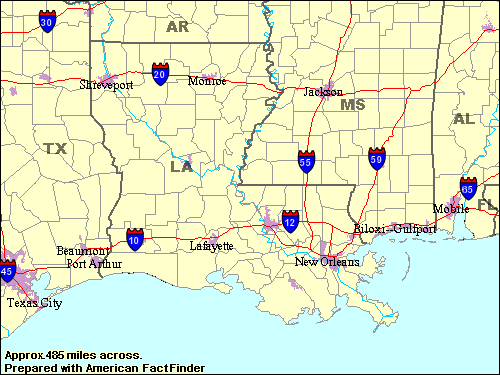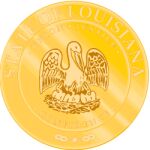|
Travel
& Geography
Travel to the United States | The States & Territories | The Regions of the United States | Facts & Statistics |
|
|
||
 |
||
|
Louisiana,
the "Pelican State"
Abbreviation: LA |
||
|
Louisiana, named
in honor of the French King Louis XIV, has a colorful history. In 1803,
President Thomas Jefferson negotiated the Louisiana Purchase with Napoleon.
It was admitted to the Union as the 18th state in 1812. A strong French
influence is still evident throughout the state. Situated in the Deep
South, Louisiana lies where the mighty Mississippi empties into the
Gulf of Mexico. Water routes link the state with both the heart of America
and lands across the sea. The life of Louisiana is based on a mixture
of many peoples, cultures and customs. Tourists visit New Orleans for
the city's festive Mardi Gras, the old French Quarter and the city's
jazz clubs. Other attractions include Acadiana, the homeland of the
Cajuns, and magnificent old plantation homes. GOVERNMENT Population (July 2001): 4,470,368; National Rank: 22; Percent change since April 2000: -0.1% Land Area: 43,566 sq mi. (112,836 sq km); National Rank: 31 10 largest cities (2000): New Orleans, 484,674; Baton Rouge, 227,818; Shreveport, 200,145; Lafayette, 110,257; Lake Charles, 71,757; Kenner, 70,517; Bossier City, 56,461; Monroe, 53,107; Alexandria, 46,342; New Iberia, 32,623 ECONOMY |
|
DISCLAIMER Any reference obtained from this server to a specific commercial product, process, or service does not constitute or imply an endorsement by the United States Government of the product, process, or service, or its producer or provider. The views and opinions expressed in any referenced document do not necessarily state or reflect those of the United States Government. |
|
U.S. Diplomatic Mission to Germany
/Public Affairs/ Information Resource Centers Updated: June 2003 |

